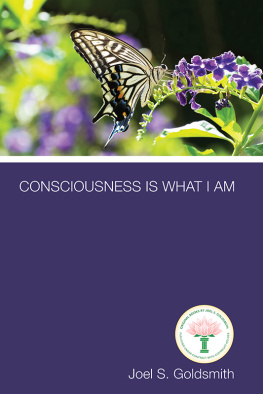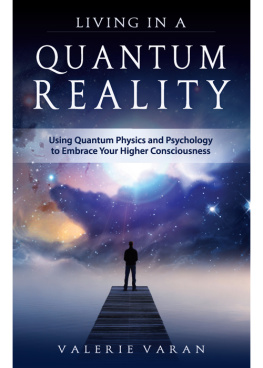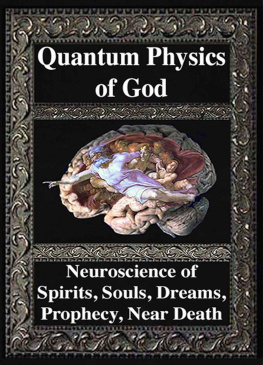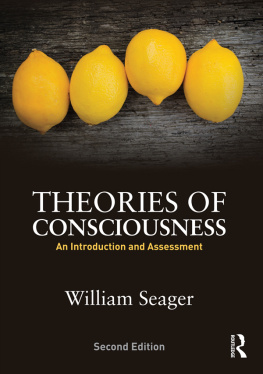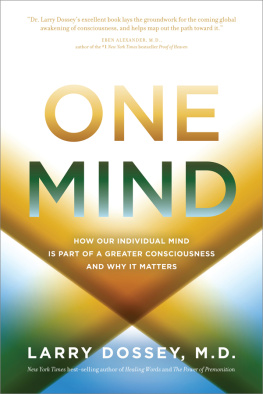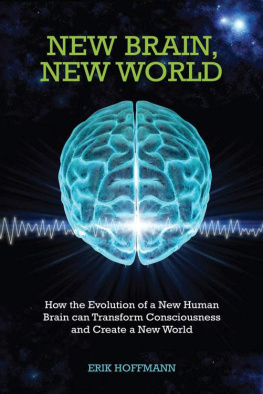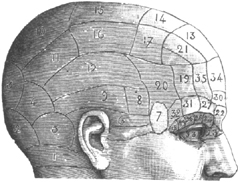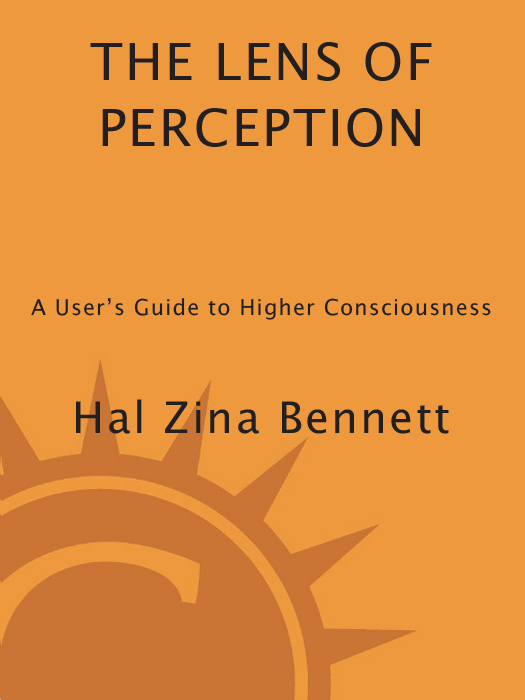
P RAISE FOR T HE L ENS OF P ERCEPTION
Bennetts metaphor for each human beings own way of looking at life is a lens. He shows how this concept is useful in understanding relationships, careers and life itself. His approach is through the shamanic tradition and what he sees as its modern continuation, Jungian analysis. Bennetts ideas are intelligent and well stated. You may disagree with him but, then again, your lens is not his.
Publishers Weekly
Using a range of techniques from shamanic stories to guided imagery, Bennett leads readers to consider how to use their lens to help in life decisions. This is not a religious book in any sense, but it certainly lends credence to the spiritual aspects of life: readers are left to use this spirituality as they feel appropriate.
School Library Journal
The Lens of Perception offers a new perspective on the process of rebirthing spiritual insight into post-modern life.
Terence McKenna, author of Archaic Revival
Bennett brings the magical world of our existence back into our everyday lives.
Lynn Andrews, author of Walk in Balance
Twenty years before The Secret, Hal Bennetts The Lens of Perception provided readers with an in-depth look at the transformative power of the mind. In this classic book, Bennett weaves together the realities of science and spirit and offers tools for exploring our inner worlds.
Colleen Mauro, publisher of Intuition Magazine
If youre looking for an instruction manual on how to uncover and develop your innate capacities to create and manifest in the world from the soul level, this is it!
Michael Toms, New Dimensions Radio
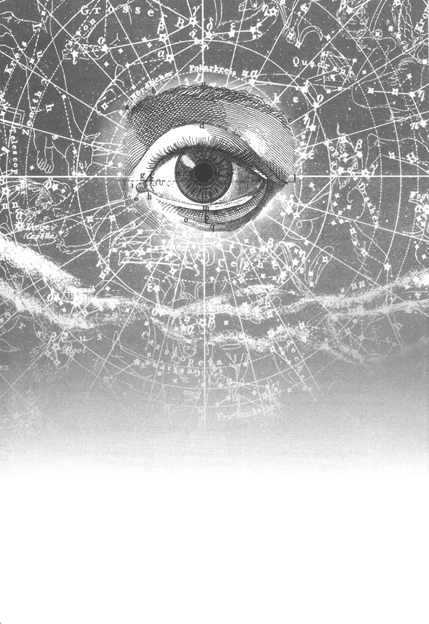
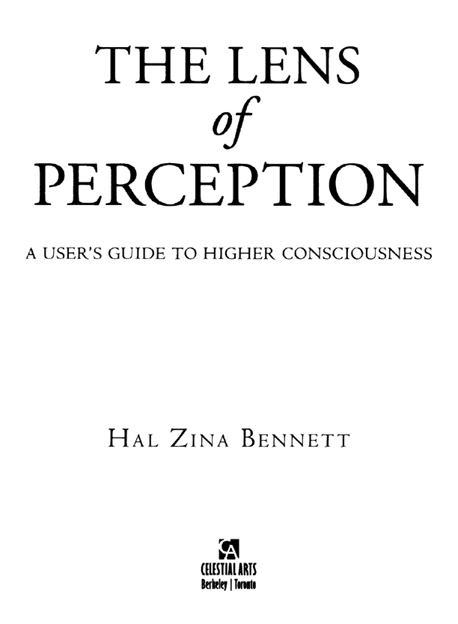
Copyright 1987, 1994, 2007 by Hal Zina Bennett. All rights reserved. No part of this book may be reproduced in any form, except brief excerpts for review, without the written permission of the publisher.

Celestial Arts
an imprint of Ten Speed Press
PO Box 7123
Berkeley CA 94707
www.tenspeed.com
Distributed in Australia by Simon and Schuster Australia, in Canada by Ten Speed Press Canada, in New Zealand by Southern Publishers Group, in South Africa by Real Books, and in the United Kingdom and Europe by Publishers Group UK.
Library of Congress Cataloging-in-Publication Data
Bennett, Hal Zina, 1936
The Lens of perception: a users guide to higher consciousness / Hal Zina Bennett.3rd ed.
p. cm.
eISBN: 978-0-307-81488-3
1. Perception. 2. Consciousness. I. Title.
BF311.B448 2007
153.7dc22
2007014585
v3.1
To the memory of David Hinds, publisher and friend
CONTENTS
ACKNOWLEDGMENTS
EVERY SUCCESSFUL BOOK is dependent on the efforts of a great many people, whose names are rarely seen in print. At the top of my list is David Hinds, who first recognized the value of this work. He was one of the most creative book people Ive ever known. I am sure I speak for all those who knew him when I say that he is sorely missed.
Next Id like to thank Phil Wood, Joann Deck, Mary Ann Anderson, and most especially Veronica Randall, who led me through the second and third editions of the book.
Thanks to Margie Sherman, herself an accomplished writer, for typing and proofing the final draft of this manuscript.
I am deeply grateful to Chris Hall for the new cover art, which greatly enhances the book and gives readers a visual overview of what this book is about.
Id particularly like to thank the thousands of readers and students who have championed my books over the years, and especially those who encouraged me to get The Lens of Perception back into print.
Finally, thank you Susan J. Sparrow, my wife and life partner, for your encouragement, support, faith, and love.
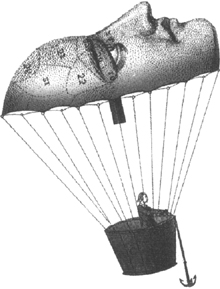
PREFACE TO THE THIRD EDITION
WHEN I BEGAN THE FIRST DRAFTS of this book, nearly twenty years ago, the term lens of perception was hardly a household phrase. Since then the term has made its way into popular speech, as well as into the lexicon of psychologists, philosophers, and quantum physicists. Today it is generally agreed that this term refers to an individuals idiosyncratic way of looking at the world. In science it is seen as denoting the particular viewpoint of the observer. In popular speech it is used to indicate any personal perspective. I recently overheard a woman in an airport talking to her friend on her cell phone. She proclaimed that her recent trip to Ghana caused her to look at the world through a very different lens! In an article titled Sufism and New Physics, by Arthur Kane Scott, published in Sufism: An Inquiry, volume 7, number 1, that author said of the famous Hubble telescope: Let Hubble be the new lens of perception which will lead us to the heart of Existence In her book The Intuitive Way, author Penney Pierce refers to the lens of perception as our capacity to know.
In science, philosophy, psychology, and theology texts, even from thousands of years ago, we are taught how important it is to be able to differentiate between inner (subjective) and outer (objective) reality. This has also been one of the central dilemmas of the scientific method in recent years, that is, seeking ways to observe the universe without casting our own projections upon it. In efforts to see more clearly, we employ double-blind methods, yet the best scientists admit that these studies arent the answer. The power of our own projections is so strong that it will warp even the way we set up our scientific constraints. For example, we know that subatomic particles such as electrons can appear as waves (energy) or particles (mass) depending on the viewpoint of the observer. For quantum physicists, this realization has profound implications since it points to the interactive nature of our universe, a universe that is impacted by our feelings, thoughts, beliefs, and actions.
Our struggles with the lens of perception affect virtually every area of our lives. We cannot completely escape its profound influence, for it is through the lens that we make sense of our world. The best we can do is become aware of its impact, and acknowledge its presence in our lives so that we can more fully accept our own part in creating the world we live in. Only when we accept the fact that the world is never exactly as we see it through our individual lens of perception will we be able to accept ourselves or the mystery that is life itself.




